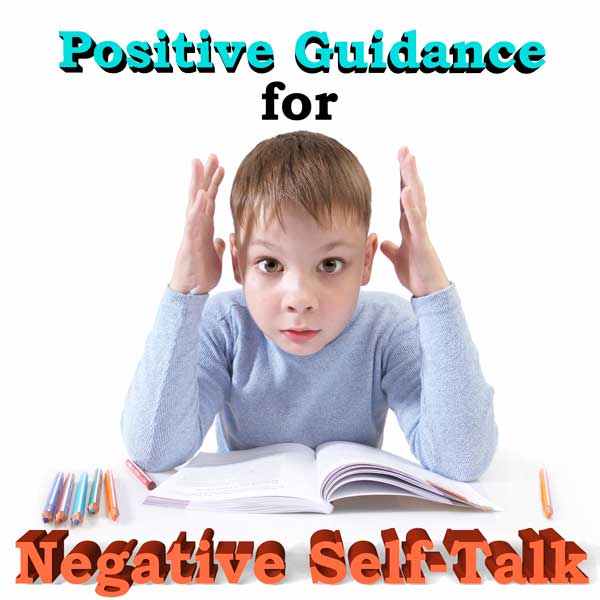How do you find the perfection in everything, even things you don’t like?
Here’s how we did it in the previous post with “perfectionism,” the kind you didn’t like.
In Part 1, you experienced:
1. Starting from where you are—believing “perfectionism” is a flaw
2. Looking at perfectionism objectively—discovering it’s not what you thought; it’s actually imperfectionism
3. Finding the perfection in imperfectionism—the gift of excellence which is something you love and never want to give up
Pretty familiar, right? Finding perfection is pretty much like finding hidden STRENGTHs. Here’s how to apply the familiar tools of our three-step approach in a slightly different way to help you find perfection in anything and anyone.
1. SAY WHAT YOU SEE (SWYS) TO YOURSELF
VALIDATE YOURSELF:
This is the step of starting from where you are. When you see something that strikes you as imperfect, and you start to feel angry, frustrated, or defensive about it, trying to see the perfection in it is too big a leap. So start from right where you are by SAYing WHAT YOU SEE to yourself to make yourself right about what you think and feel.
The goal is to get all of your judgments and emotions out, then validate what you like, want, and wish. You’ll know you are on track when you start agreeing with yourself along the way.
In the case of a messy kitchen counter covered with non-kitchen things like loose papers, keys, change, hairbrushes, etc.(something that never seems perfect to me), it might sound like this:
SWYS: “You really hate messy counters! Hairbrushes in the kitchen are just wrong!“
Self: “Yea! Look at those hairs. Yuck! And all those papers. Why do all the papers in the house always end up right there?!! Nobody seems to care but me!”
SWYS: “You feel like nobody cares what you want. They know you hate messy counters, and that stuff just keeps coming back no matter what you do!”
Self: “Yea. I can’t relax in a mess, and that one’s right in the middle of the room!”
SWYS: “It feels like more things to do, and you don’t need that! You like things neat and tidy. Everything in it’s place—papers filed, brushes in bathroom drawers. You love clear counters! Organization really matters to you. You wish everybody would just put their stuff away without you having to say a word!”
Self: “Yea! That’s exactly what I wish!”
DESCRIBE WHAT’S HAPPENING:
Getting in touch with what you wish or want (your natural motivator) gets you ready for problem-solving. The next step is looking at the situation objectively.
In the case of the messy counter, objective observation helps you understand why the counter becomes cluttered day after day no matter what you do:
SWYS: “There’s a hairbrush at this end; the pile of change and keys are in the middle; the papers are spread out; there are gum wrappers at at that end. Even though I make them clear it off on Saturday, it’s like this again by the end of the week.”
DESCRIBE WHAT’S NOT HAPPENING:
Adding contrast by consciously describing what’s not happening can help you see more:
SWYS: “They don’t pile everything they own onto the counter, even though it feels like it. Toothbrushes never end up here; some papers actually get filed or thrown away. Something must be different about these things…”
2. LOOK FOR HIDDEN STRENGTHs:
When you see the situation objectively, you are ready to find the perfection. This is the step of finding hidden STRENGTHs, the missing step in finding solutions that last.
Here are some questions that can help you find hidden STRENGTHs (i.e. perfection) in any situation:
- What works about it?
- What’s right about it?
- What’s perfect about it?
Still talking to yourself, looking for perfection in the counter mess might sound like this:
SWYS: “The brush is near the pantry. She brushes her hair walking to the kitchen, sets it down, then eats breakfast, grabs her backpack and runs out the door. Hmm…”
STRENGTH: “Even though you don’t like the brush there, that pattern shows she cares how she looks, likes to be on time, and is naturally efficient!”
SWYS: “My spouse’s pile of change and keys are in the middle where he (and everyone who comes into the house) can see them. His papers are spread out so they can be seen at a glance, and he complains that he can’t find things when I stack or file them. Hmm…”
STRENGTH: “Oh my gosh! He’s a visual organizer! He needs see things to remember to do something with them.”
3. FINDING CAN DOs:
Figuring out how something works, or how it’s right or perfect, (like the mess on the counter or any other mess in your life), changes your approach to problem-solving. Rather than reacting like “nobody cares,” finding hidden STRENGTHs like your daughter’s “efficiency” and your spouse’s “visual organization,” makes it possible to work together for CAN DO solutions that work for everyone without anyone becoming defensive.
For example, where CAN your husband lay out his papers and the things he needs to remember? How CAN your daughter fit hair brushing into her morning schedule and remain efficient? With your new view on what’s happening, how CAN you help your family succeed in keeping the counter clean?
Imperfectionism keeps imperfections in place; true perfectionism brings out the perfection that is already there.
In the previous post, I asked you to imagine how much more calm and relaxed you would be if you started defining everything by its perfection instead of its imperfection. I hope this example helps you see it’s possible to get there. With practice, you can bring more and more perfection into your life…which is what true perfectionists do and what you’ve wanted to do all along!
If you’d like more help with that, check out our private coaching offers, including a free introductory 1/2 hr for new clients.
By request, here is Part 3 – why you became a perfectionist in the first place.











